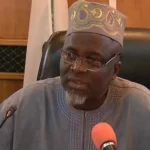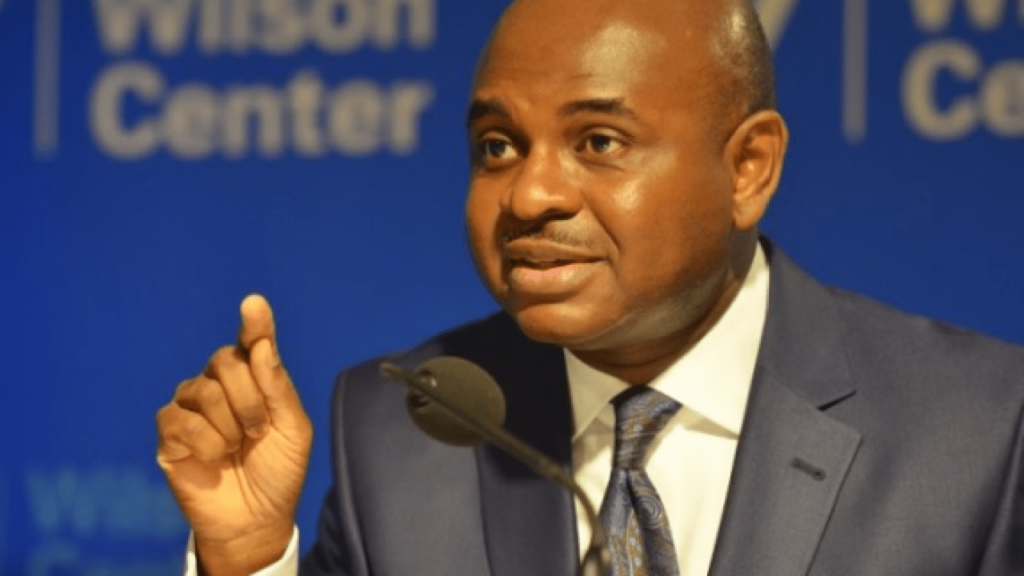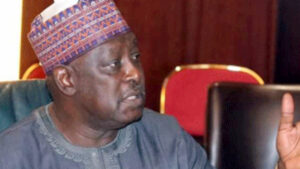President of the Africa School of Governance and former Central Bank of Nigeria Governor, Professor Kingsley Moghalu has given a detailed prognosis of Nigeria’s developmental challenges, saying contrary to popular belief, corruption isn’t the problem.
In a detailed post on his X handle, Moghalu said Nigeria’s lack of nationhood is the biggest challenge hindering the country’s realization of its potential.
According to the former central bank governor, Nigeria currently needs a transformative leader in the mould of Turkey’s Mustafa Kemal Ataturk, a man who would transcend vision beyond the country’s disparate tribes, lead in a manner that restores confidence in the idea of Nigeria among citizens
The statement from Moghalu reads: “There is just one reason why Nigeria has not been able to come close to attaining its potential, let alone attaining it. And it’s not, like many believe, corruption. It’s this: Nigeria is not a nation. It’s a territorial state. It’s a country. Without nationhood, it has no future
“It’s the absence of nationhood that feeds the corruption, the focus by the political class on power and primitive accumulation rather than governance and delivering public goods. It’s the absence of nationhood that creates the economic stasis, because there is no real vision.
“The economy” and its “management” is, and has been for a long time, all about access to economic rents by contending, disparate, and vested interests. It’s not about wealth creation for the 220 million people, most of who live in poverty.
“Nigeria cannot become a nation until it deals with two questions:
“1. how to manage the fundamental problem of state formation in which disparate tribes with vastly different worldviews or none at all were lumped together and left to struggle for power in the territorial state.
“2. The causes and consequences of the Nigerian Civil War. Nigerian leaders have been cowards over this question, burying their heads in the sand like ostriches, instead of being statesmen and fashioning out a strategy for a healing and closure that has yet to happen.
“There are two paths to nationhood for Nigeria. One is the possible emergence of a transformative leader in the nature of Turkey’s Mustafa Kemal Ataturk. A man or woman with a transcending vision beyond our disparate tribes, who leads in a manner that restores confidence in the idea of Nigeria among citizens who make “the nation” not just politicians who spout the word without even understanding its meaning. I believe it was the late President Samora Machel of Mozambique who said that “for the nation to be born and to live, the tribe must die”!
“The alternative is to recognize our tribes as a reality, and convene a constitutional framework that negotiates and agrees what Nigeria is, means, and guarantees to all Nigerians and ethnic nationalities that constitute it. In this context, only a true federalism can work, and secure a future for Nigeria. Either path calls for courage. After Olusegun Obasanjo, who with all his human frailties remains the only pan-Nigerian leader we have had since 1999, in the sense that he revised his views about nationhood in his older years rather than holding on to the false “nationhood” of “United, indivisible Nigeria” minus the real inclusion of some of its parts in the possibilities for ultimate political leadership that has been the real pattern of his civil war contemporaries, I am yet to see a truly national leader for Nigeria.”










More Stories
Senator Nwebonyi wants poor communities relocated out of Abuja Airport, says not befitting to Nigeria’s image
UTME crisis: Oloyede denies claim of undermining South East candidates
FG says Nigerians will benefit from sale of 753 housing unit seized from Emefiele